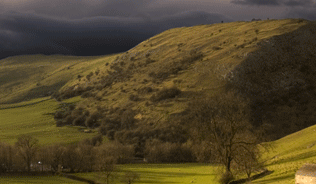What is nature worth? What is water worth? Is trying to answer this question simply ‘putting a price on nature’, thereby supporting its subversion to the perversities of a broken economic system?
In the ‘old world view’, or in other words the dominant legacy economic paradigm framed by our industrial past, the value of nature was mainly concerned with its potential as a source of exploitable commodities. The industrial model effectively treats the natural world as an inexhaustible source of resources with an equally unbounded capacity for waste assimilation, the mantra of continued growth requiring ever-mounting throughput of material through the economy. In other words, selling more ‘stuff’ to more people who could use it then throw it away.
Of course, rising population and dwindling ecosystem capacity, though not part of the framing economic paradigm, meant that we began to recognise a mounting roster of adverse effects particularly since the 1960s but going back into the preceding century. Hence, society elected through the formulation of statutory legislation, as well as through protection of rights through evolving common case law as well as market forces for limited resources, to place controls on some activities for which acute impacts were being felt. From the Alkali Act of 1863 through the National Parks and Access to the Countryside Act 1949, the Clean Air Act of 1956 and a host of successive legislation at national and EU levels, various facets for ecosystems have fallen under statutory protection. But still the paradigm remained of economic supremacy held in check in some areas by peripheral ‘green’ constraints or positive subsidies.
The very concept of ‘conservation’ for many in the farming sector is still regarded as a constraint. Equally, many in business and, sadly, government seem to regard environmental protection and its associated ‘green tape’ as an irksome burden. The industrial-age paradigm still rules the corridors of power, and the mindsets of many in the corporate sector that influence it.
But what is nature really worth?
Crudely, without food, water, air and other rather important elements of the environment, we can neither survive nor run economic enterprises. Less crudely, diminishing quality of these media has an incremental impact on the performance of business and the health of society, with declining ‘headroom’ for all in an ever more populated world. Industries complete more heavily. As we have seen many times since 1967’s Six Day War in the Middle East or the Icelandic ‘Cod Wars’ in the 1950s-1970s, conflicts over critical resources such as water can spark major conflicts. A changing climate exposes infrastructure to new vulnerabilities, and threatens the livelihoods of many with flood, drought or novel diseases.
Nature is then worth a whole lot more than its retail value or its utility as a manufacturing resource. Nature is the absolute core resource for all aspects of human wellbeing: biophysical health, sufficiency for all averting conflicts, economic resources, ‘quality of life’ and future resilience.
Valuation is not accountancy. It is not about monetising species, habitats or views, that can be traded off in the market again ‘economic progress’. Valuation is about recognising the breath of value systems that natural resources support, from the spiritual to the cultural, local character, economic, etc. It is about reflecting all the ways that ecosystems sustain society’s current and future needs and factoring this into decision-making in a far more integrated and equitable way. This systems perspective is part of a new paradigm that has been breaking through into international development since the 1980s, and is now articulated as a ‘direction of travel’ in the UK Natural Environment White Paper, The Natural Choice (June 2011).
From a systems perspective, for example, we are far more interested in the additional services that water systems provide over and above the basic commodity value of water in isolation. These include contributions to regional character, navigation, cooling and other forms of support for industrial processes, the natural flood attenuation properties of catchment habitats, landscape aesthetics and ecotourism potential, nutrient cycling, support for biodiversity including fishery recruitment, etc. Recognition of all of these diverse values – we refer to them as ‘ecosystem services’ – as a connected set representing the multiple interests of all in society frames the conservation and protection of water and other elements of nature as a net ‘value add’ to society, representing a wealth and diversity of core resources. This is diametrically different to the industrial mindset, which frames ‘conservation’ as a net constraint and cost on society.
Not only is this a more connected way of thinking, acknowledging the plurality of values that water systems and other environmental attributes provide for society, but it also chimes rather well with the Government’s growth agenda.
‘Greenest government ever?’ Let’s test the waters to find out.
Mark Everard is a Vice President of the IES, an author, scientist and broadcaster with extensive involvement in the worlds of environment and sustainability, angling and music. Mark’s work, books and other publications span these topics and others besides, all forming part of his personal mission to contribute to cleaner waters for all in a sustainable world.





